BIK applies where an employer provides a company car or van (without transfer of ownership) to an employee for their personal use
Benefit-in-kind: Company Cars from 1 January 2023
- The new BIK rules in 2023 will apply to ALLcars (including electric vehicles)
- BIK for cars is based on Original Market Value (OMV). The OMV is the cost of the car, in Ireland, prior to its first registration, including all Irish taxes and duties
- The OMV rule applies regardless of if the employer provides the employee a second-hand car
- From 2023, the BIK cash equivalent on the use of a company car by an employee or director will be determined based on both the business mileage undertaken and the vehicle’s CO2 emissions;
The amount of car business mileage and CO2 emission category
| Lower Limit | Upper Limit | A | B | C | D | E |
| Km’s | Km’s | % | % | % | % | % |
| 0 | 26,000 | 22.50 | 26.25 | 30.00 | 33.75 | 37.50 |
| 26,001 | 39,000 | 18.00 | 21.00 | 24.00 | 27.00 | 30.00 |
| 39,001 | 52,000 | 13.50 | 15.75 | 18.00 | 20.25 | 22.50 |
| 52,001 | Above | 9.00 | 10.50 | 12.00 | 13.50 | 15.00 |
The CO2 emissions category of the car is as per the following table
| Vehicle Category | CO2 Emissions (CO2 g / KM) |
| A | 0g/km up to and including 59g/km |
| B | Over 59g/km and up to and including 99g/km |
| C | Over 99g/km and up to and including 139g/km |
| D | Over 139g/km and up to and including 179g/km |
| E | Over 179g/km |
Worked Example;
- John’s employer provides John with the use of a company car on 1st January 2023
- The OMV of the car is €30,000
- The car produces 90g/km in CO₂ emissions
- The actual business kilometres in the year were 40,000 kilometres
- 90g/km in CO₂ emissions puts the car in vehicle Category B
- As John drove 40,000 kilometres in the year, the cash equivalent is equal to the OMV x 15.75% (mileage between 39,001 and 52,000)
- BIK Calculation: Cash Equivalent (OMV) €30,000 x 15.75% = €4,725
What do I need to do as an employer?
- Employers are required to maintain records of the kilometres travelled by each employee
- Records should be maintained on a weekly / bi-weekly or monthly basis in order to calculate the BIK to be reported on a real time basis via the weekly / bi-weekly or monthly payroll returns
Benefit-in-kind: Company Vans from 1 January 2023
- From 2023, BIK for Vans will be based on 8% of Original Market Value (OMV)
Benefit-in-kind: Company Electric Vehicles from 1 January 2023
- Where an electric vehicle is made available for an employee’s private use during the years 2023 to 2025, the cash equivalent will be calculated based on the actual original market value (OMV) of the vehicle reduced by:
- €35,000 in respect of vehicles made available in the 2023 year of assessment;
- €20,000 in respect of vehicles made available in the 2024 year of assessment; and
- €10,000 in respect of vehicles made available in the 2025 year of assessment
- €0 in respect of vehicles made available in the 2026 year of assessment and subsequent years
If the reduction reduces the OMV to Zero, then a BIK charge will not arise. Any portion of OMV remaining, after the reduction is applied, is chargeable to benefit-in-kind at the prescribed rates of that of a fuel car as above.
Charging point at workplace;
- Any expense incurred by an employer in the providing of electric vehicle charging stations or charging points/ports for employees at the employers workplace, as long as all employees can avail of this facility, then the employees are exempt from BIK on the benefit of the electrical charge
Worked Example;
- John’s employer provides John with the use of a company electric car on 1st January 2023
- The OMV of the car is €50,000
- The car produces 40g/km in CO₂ emissions
- The actual business kilometres in the year were 30,000 kilometres
- 40g/km in CO₂ emissions puts the car in vehicle Category A
- As John drove 30,000 kilometres in the year, the cash equivalent is equal to the OMV x 18.00% (mileage between 26,001 and 39,000)
- BIK Calculation: Cash Equivalent (OMV) €50,000 Less €35,000 (Tax free amount for 2023) = €15,000 x 18.00% = €2,700
Further information;
Contact us today
Richard Greally, FCCA, AITI (CTA) Chartered Tax Advisor, B.Sc Mgmt, Diploma in Tax, Cert in Capital Taxes for Private Clients, Cert in Business Studies
Legal Disclaimer: This blog is intended to describe the subject in general terms. As such, it does not attempt to cover every issue which may arise in relation to the subject. It does not purport to be a legal interpretation of the statutory provisions and consequently, responsibility cannot be accepted for any liability incurred or loss suffered as a result of relying on any matter published herein





